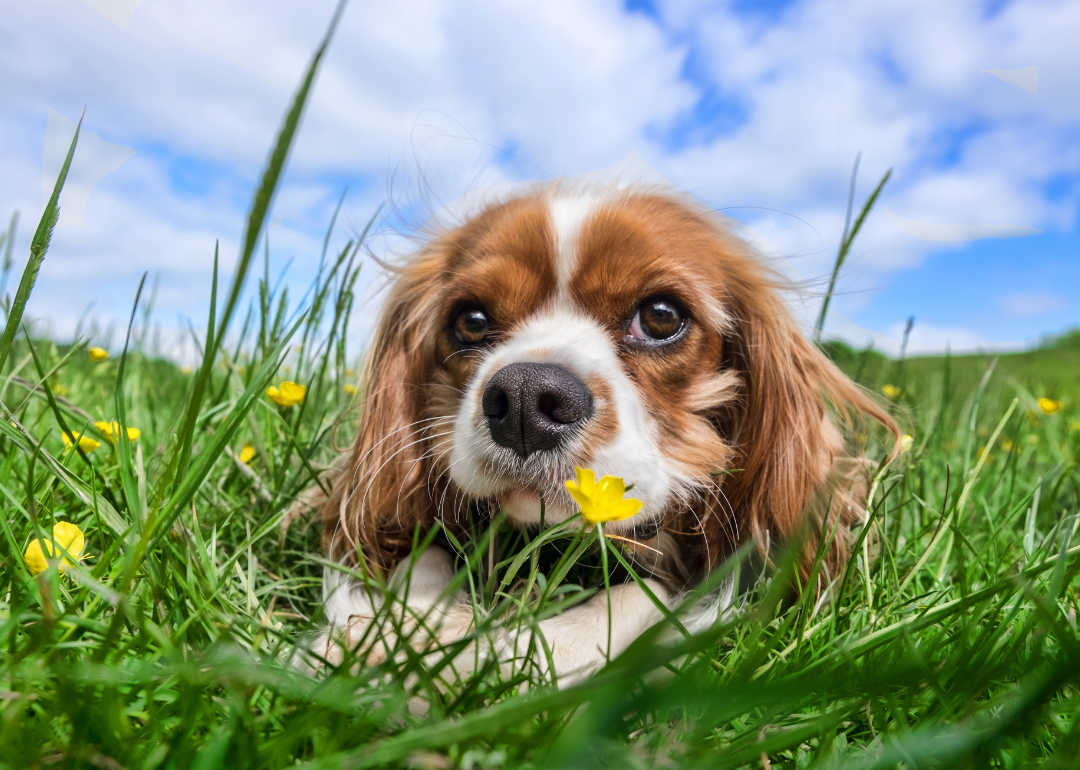
Most popular dog breeds for 10 different characteristics
This story originally appeared on Sound Dollar and was produced and distributed in partnership with Stacker Studio.
Most popular dog breeds for 10 different characteristics
Just as an animal shelter will want to ensure you’re a good fit for a dog, it’s important that you do your research and understand which types of dog breeds may work best in your home. With every type of breed comes various tendencies, physical traits, and personalities that may or may not be a good fit for your lifestyle.
Pups can also be an expensive investment. A dog can cost a pet owner an average of $23,410 throughout its lifetime, though this may depend on factors such as your dog’s energy levels, size, type of fur, and any medical issues it may have.
Sound Dollar used data provided by the American Kennel Club to determine the most popular dog breeds for 10 types of traits. Popularity was based on the list of top-ranked dog breeds based on the 2021 registrations with the AKC, while breed characteristics—like size and temperament—come from the AKC’s breed database. This list highlights the top three types of dogs that ranked highest overall ranking for each category, along with a note about how the breed ranked on the AKC's list for overall popularity.
One thing to remember is that the traits assigned to each breed are by no means limited to just purebreds. Mutts, or mixed-breed dogs, carry many of these traits as well, so don't overlook them when you're looking for your newest four-legged family member. Some of the dog breeds that pop up several times on this list include Labrador retrievers, French bulldogs, and golden retrievers—no surprise considering these are some of the most popular dogs due to their friendly personalities and dispositions.
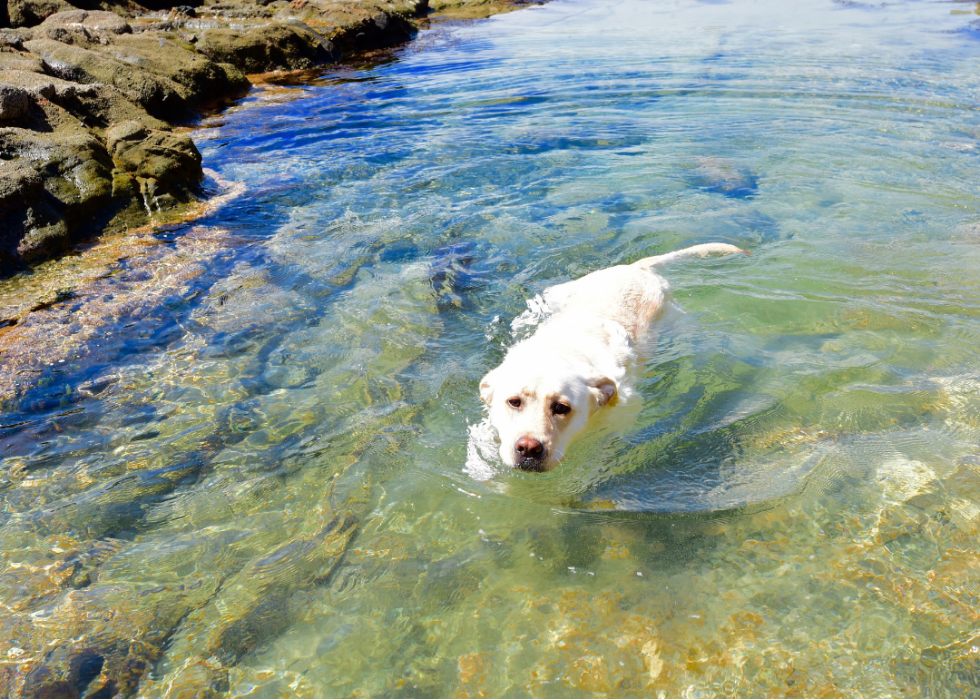
High activity level
- Labrador retriever (#1 most popular overall)
- Golden retriever (#3 most popular overall)
- German shorthaired pointer (#9 most popular overall)
If you lead an active lifestyle, you may want a canine sidekick that has just as much energy as you to accompany you on your adventures. Friendly pups who are good with both people and other dogs, Labrador retrievers are the most popular dog breed in the U.S. Similarly, golden retrievers are breeds with warm personalities that keep their puppy-like playfulness for most of their lives.
German shorthaired pointers, known for their intensity and endless energy, are often used for hunting. Dogs with high levels of energy may require more of a financial investment as they require a higher caloric intake, and may need more toys and sturdy harnesses. The average annual cost for food, supplies, and medicines for large dogs like these is $3,239 during the first year.
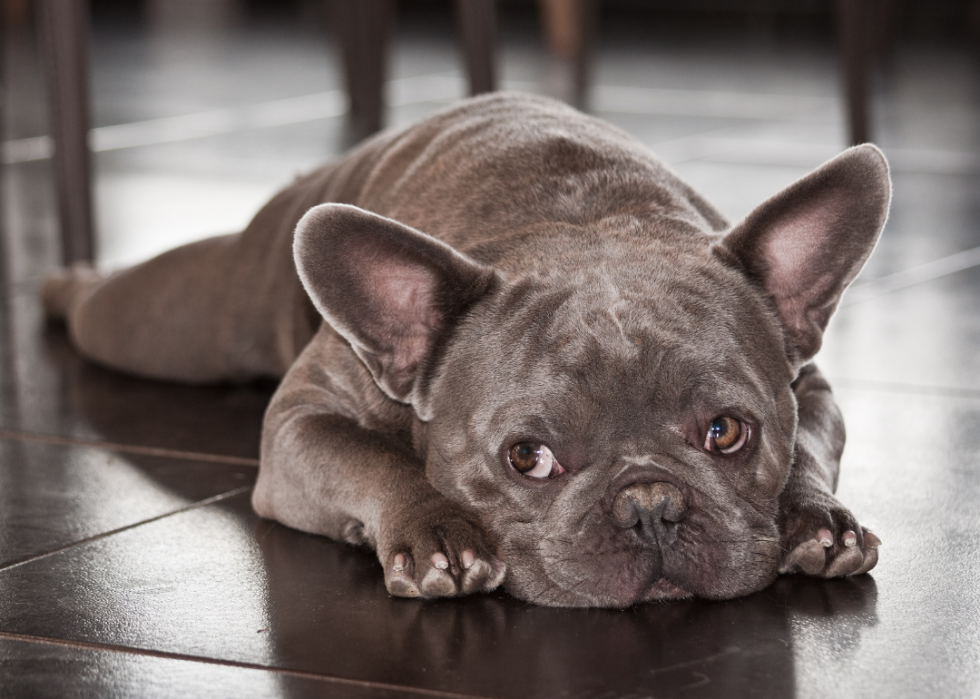
Low activity level
- French bulldog (#2 most popular overall)
- Cavalier King Charles spaniel (#15 most popular overall)
- Basset hound (#34 most popular overall)
If you're always on a busy schedule and don’t have a lot of time for running around with your pup, you may want to consider a dog with a lower amount of energy. With large ears and flat faces, French bulldogs are among the most popular small dogs in the U.S. They're lively but don’t require lots of exercise.
Known for their silky coat and long ears, Cavalier King Charles spaniels are gentle companions that are perfectly content sitting next to you on the couch. Though sometimes independent, basset hounds are devoted pups with a nearly unmatched ability to track smells. Since they are a shorter and smaller breed (bassets range from 44-64 pounds), they can cost an average of $2,674 during the first year of raising them. Because these dogs have less energy, they may require fewer toys and fewer calories due to their more low-key lifestyle.
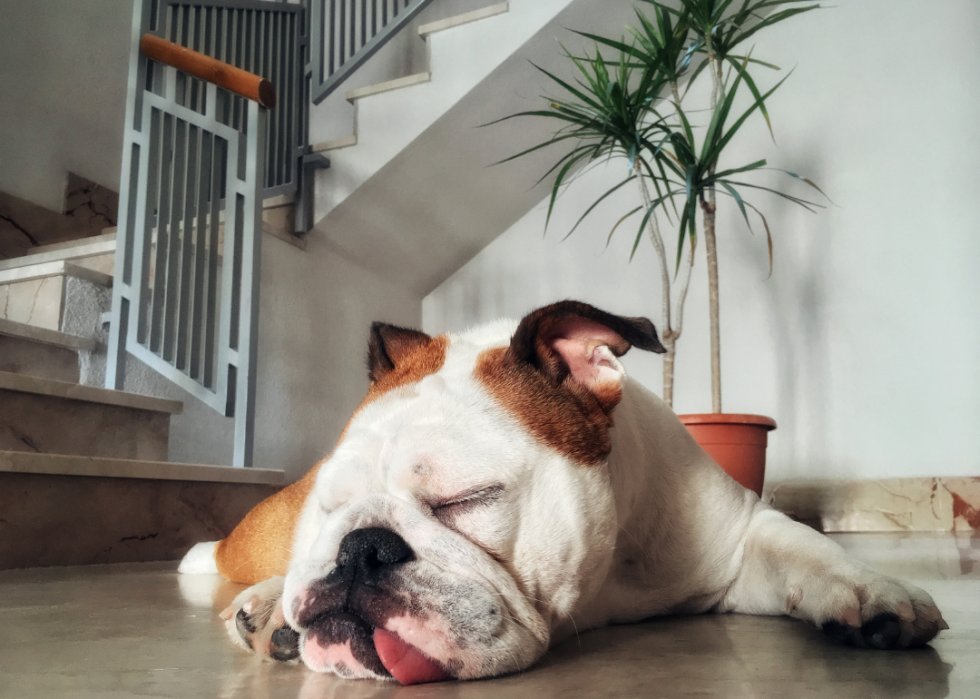
Good for apartment dwellers
- French bulldog (#2 most popular overall)
- Bulldog (#6 most popular overall)
- Yorkshire terrier (#13 most popular overall)
If you live in an apartment, your dog may have less space to run around. They may also come in contact with other residents in shared hallways or elevators, so consider carefully the type of dog that would be best suited for your home. Typically, smaller and lower energy pups do better in this situation—they don’t take up a lot of space and may not need a backyard to exercise in.
French bulldogs are usually under 28 pounds and while they may need a short daily walk, are generally low-key in personality and energy level. Standing between 14 to 15 inches tall and weighing under 50 pounds, bulldogs also make good apartment dogs due to their quieter, even-tempered nature. Yorkshire terriers are tiny dogs—typically only about 7 pounds—but can be yippy and have higher energy levels than French bulldogs and bulldogs, so keep that in mind if you live in a small space. Small dogs like these typically cost about $2,674 during their first year.
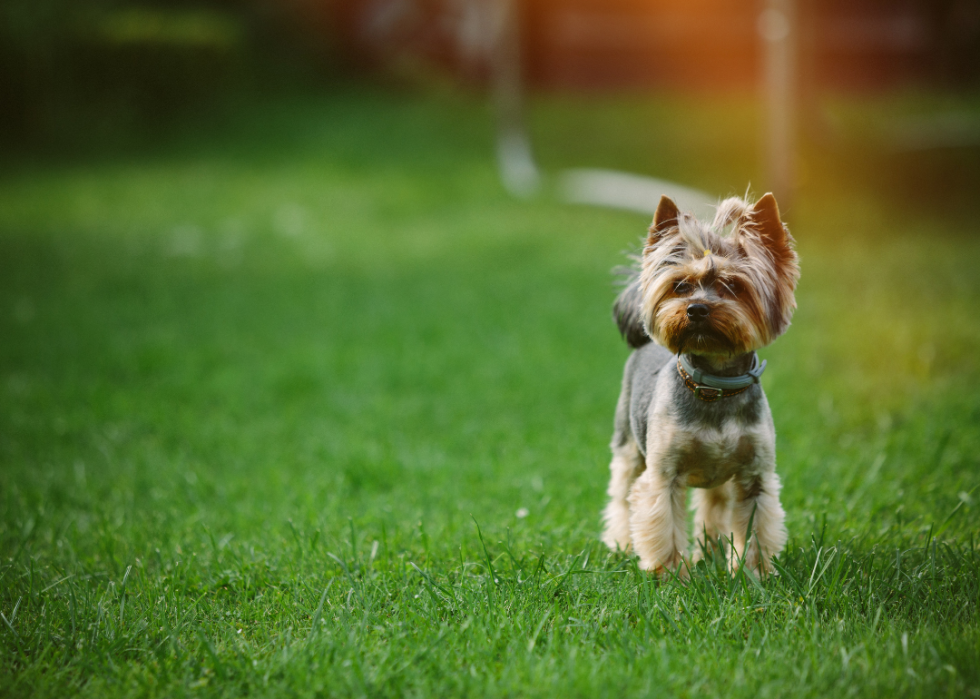
Hypoallergenic
- Yorkshire terrier (#13 most popular overall)
- Miniature schnauzer (#18 most popular overall)
- Maltese (#39 most popular overall)
Even if you love your furry friends, having a dog allergy can be a serious deterrent to owning one. This is where getting a hypoallergenic dog can help as you may have a much less severe reaction to one.
Because their silky fur resembles human hair, Yorkshire terriers can make excellent hypoallergenic pets if typical dog coats trigger allergic reactions. Outgoing and loving, miniature schnauzers are also a great choice—they have thick hair that doesn't shed too often. Malteses are another smaller hypoallergenic breed that have a very loving nature. Purchasing a hypoallergenic dog can cost you anywhere between $500 to $5,000 (depending on the breed you want), and you may have to also pay extra for hypoallergenic dogs to keep their coats well maintained.
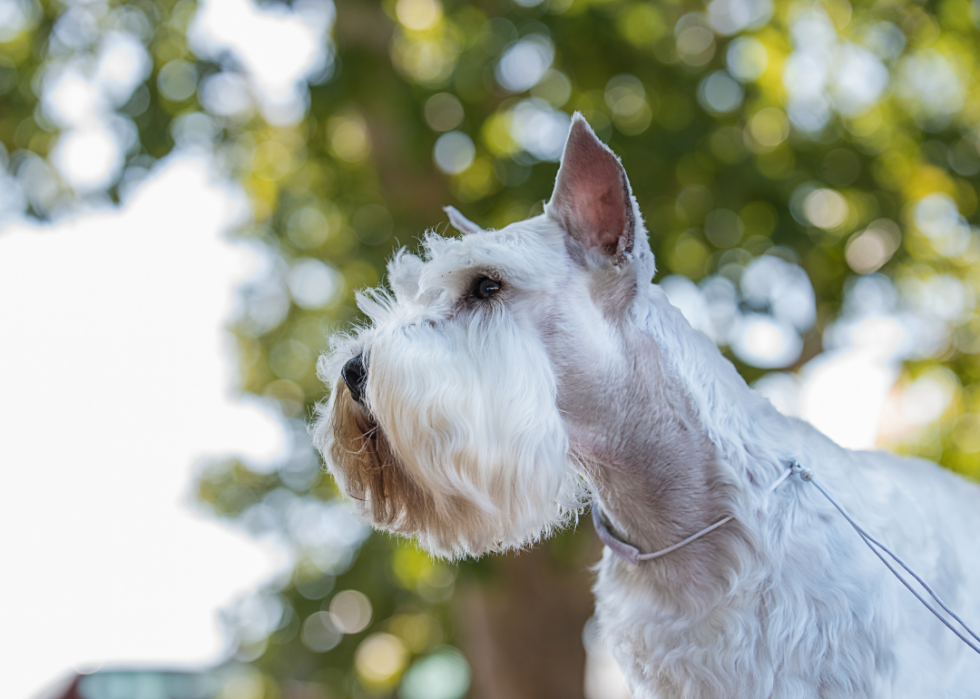
Infrequent shedders
- Yorkshire terrier (#13 most popular overall)
- Miniature schnauzer (#18 most popular overall)
- Shih Tzu (#22 most popular overall)
Pets that leave their fur everywhere can be inconvenient and costly to constantly clean up after—and problematic if you have allergies. Yorkshire terriers are known for long, luxurious coats that are hypoallergenic and less prone to shedding.
Miniature schnauzers are similar to Yorkshire terriers in that they are not only hypoallergenic, but their fur tends to stay on them, rather than your carpet or furniture. Shih Tzus are not only social pups, but their soft, silky hair also makes them infrequent shedders. Like other small breeds, these types of dogs cost $2,674 to care for annually, but may require some extra visits to a dog groomer, which can cost anywhere from $30 to $90 per trip.
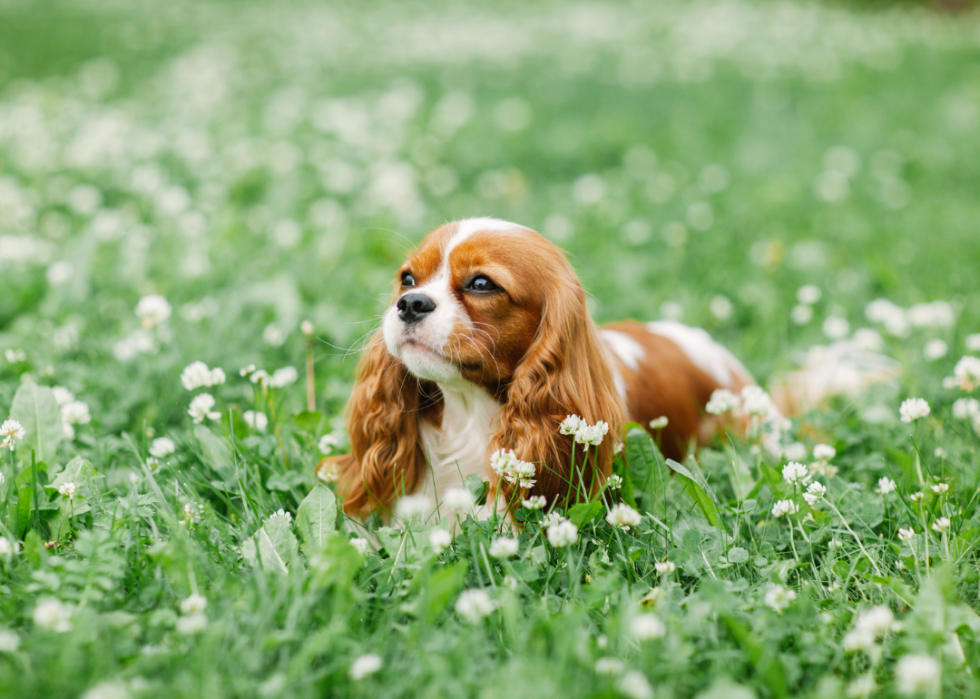
Small-sized breed
- Yorkshire terrier (#13 most popular overall)
- Cavalier King Charles spaniel (#15 most popular overall)
- Miniature schnauzer (#18 most popular overall)
If you don’t have a lot of space in your home for your canine buddy to romp and play, you may want to get a smaller dog to accommodate the lack of room. Yorkshire terriers typically only grow to be about 7 or 8 pounds. At just 12 to 13 inches and weighing between 13 and 18 pounds, Cavalier King Charles spaniels are ideal pups for a home without a lot of capacity. Similarly sized, miniature schnauzers stand at only 12 to 14 inches tall, while their weight can range between 11 and 20 pounds. Smaller dogs tend to cost less than larger dogs and, on average, you may pay about $2,674 during the first year of owning a small dog.
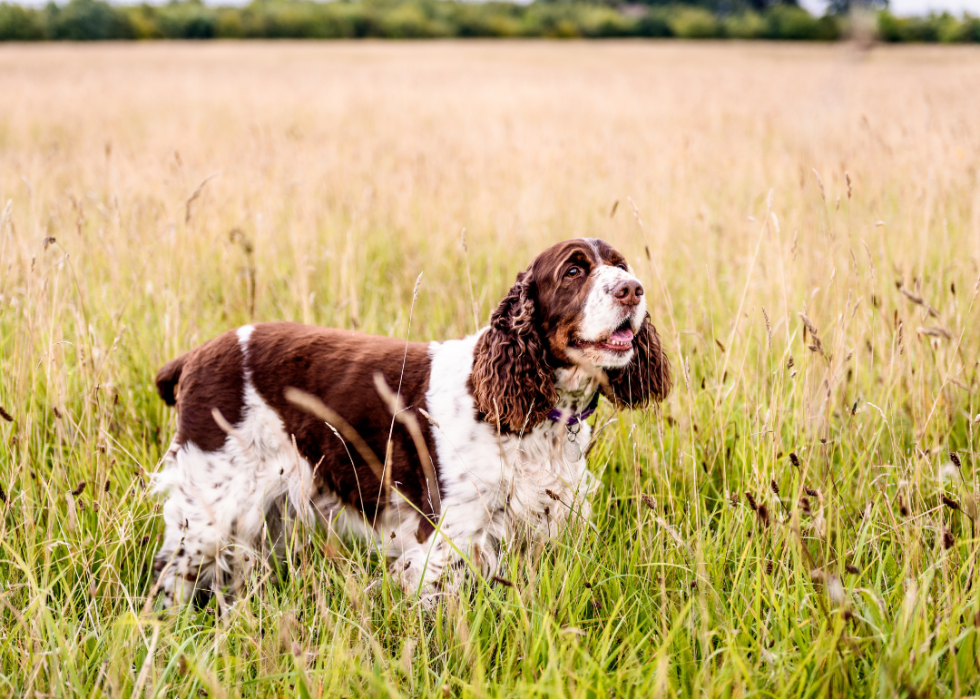
Medium-sized breed
- Siberian husky (#19 most popular overall)
- English springer spaniel (#26 most popular overall)
- Brittany (#27 most popular overall)
Medium-sized dogs may be a good option if you have a little more space for your pup (or pups) to play and have a backyard for them to enjoy as well. During their first year, a medium-sized dog can cost an average of $2,889.
With big personalities, a constant need to be busy, and high levels of energy, Siberian huskies need lots of room and may not be good apartment dogs. English springer spaniels are not only playful and warm, but they grow to be about 20 inches tall, making it necessary for them to have a bit more space. Just like Siberian huskies and English springer spaniels, Brittanys can grow to about 20 inches (or more) and are high-energy dogs that often need stimulation.
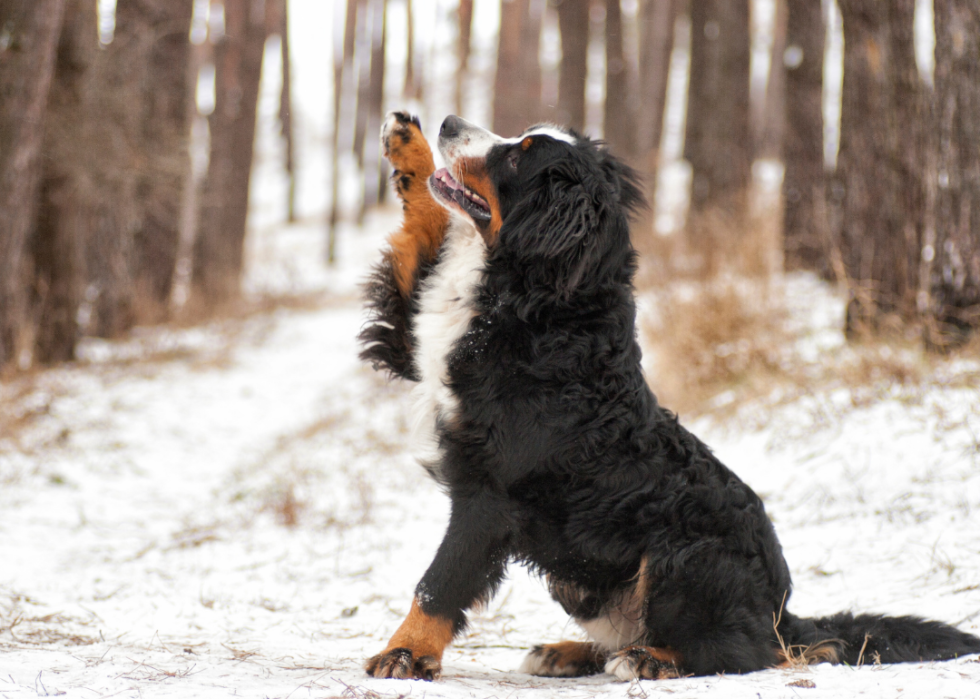
Large-sized breed
- Bernese mountain dog (#20 most popular overall)
- Cane corso (#21 most popular overall)
- Mastiff (#35 most popular overall)
Large dogs are best suited for bigger homes with lots of space for them to move around and for them to get their energy out. Bernese mountain dogs are powerfully built and can grow to be well over 100 pounds and nearly 28 inches tall, making them ideal for a house with a large backyard.
Protective and energetic, female adult cane corsos can grow to be 26 inches tall while males can reach nearly 28 inches—these dogs typically weigh more than 100 pounds. Mastiffs can grow to be more than 30 inches tall and over 230 pounds, but despite this, they’re quite sweet and protective toward their loved ones. Large dogs can cost an average of between $3,239 to $3,536 during their first year, depending on how massive the pup is.
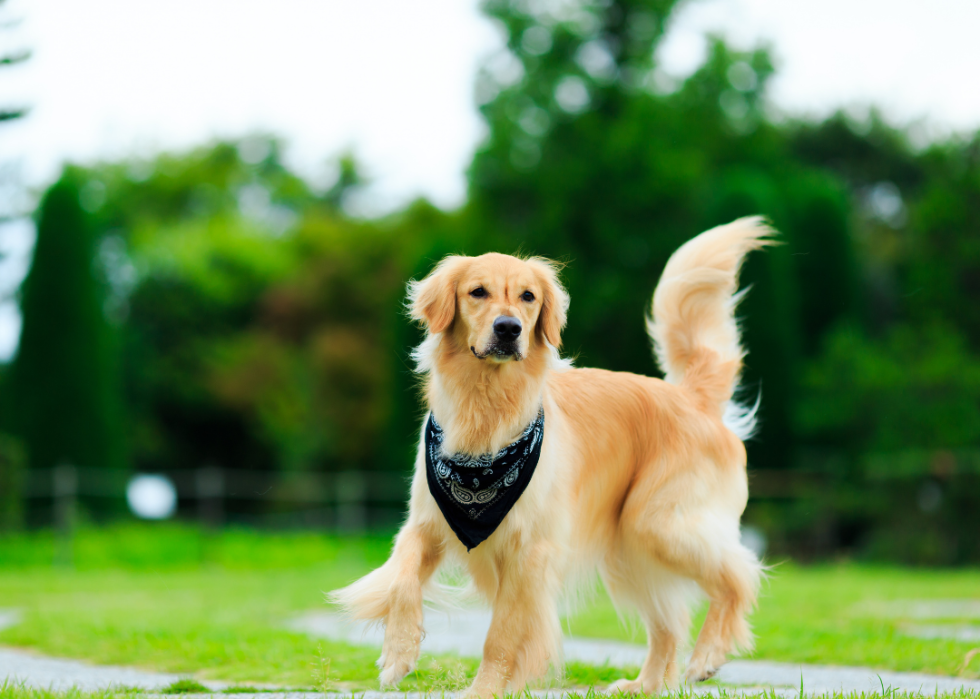
Infrequent barkers
- French bulldog (#2 most popular overall)
- Golden retriever (#3 most popular overall)
- Rottweiler (#8 most popular overall)
If you share a home, have thin apartment walls, or need peace and quiet, you may want to consider getting a dog that tends not to bark often. While barkers can alert you to someone coming to your door or a noise you’re unable to hear, some dog owners prefer a quieter canine companion.
French bulldogs tend to be even-keeled in temperament and rarely bark; however, this breed tends to be pretty alert and can still keep your home safe. Golden retrievers are smart, affectionate pooches that tend to see everyone as their friend, keeping their barking few and far between. Despite having a reputation as being protective, Rottweilers don’t often bark and tend to be quite fun-loving when it comes to their loved ones.
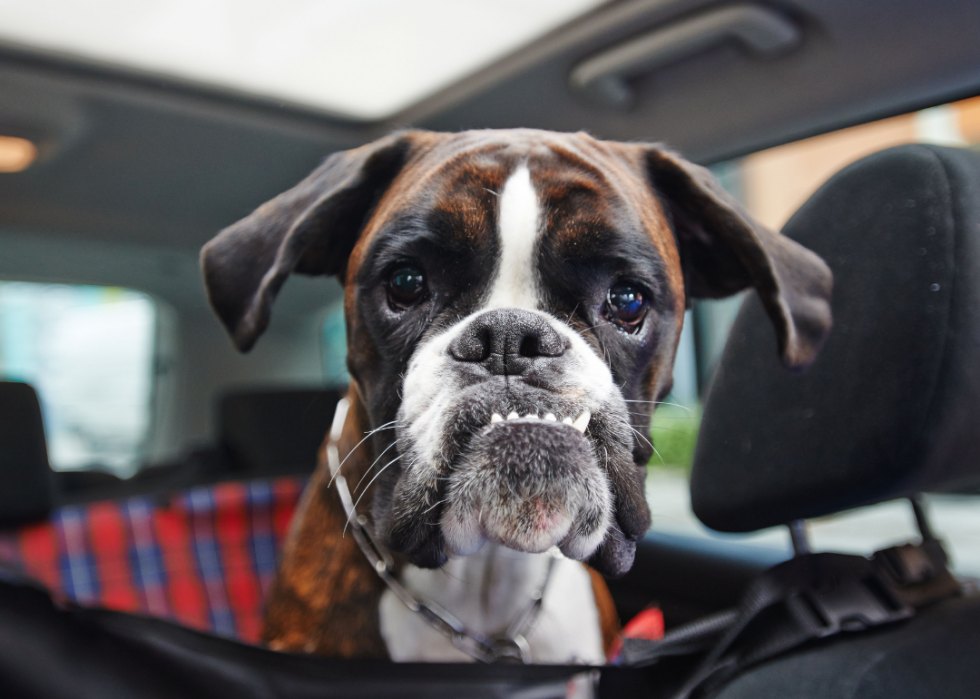
Highly trainable
- Boxer (#14 most popular overall)
- Bernese mountain dog (#20 most popular overall)
- Havanese (#25 most popular overall)
Having a well-behaved dog is important to many dog owners as it can keep your pup and others safe. However, training your dog to listen to your commands can be expensive. For example, dog training courses at the Connecticut Humane Society cost $115 for the general public. With their accommodating personalities, need for mental stimulation, and high energy levels, boxers are one of the easiest dogs to train. Bernese mountain dogs are not only highly adaptable but are smart and require lots of mental engagement which can make them easier to train than other breeds. Intelligent, playful, and open to just about anyone, Havanese tend to be good at learning and following commands.



